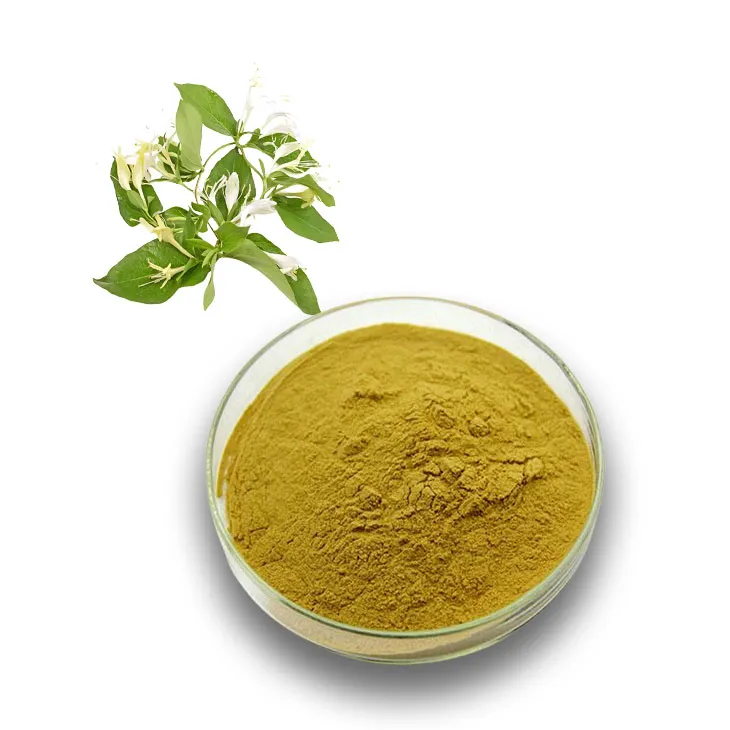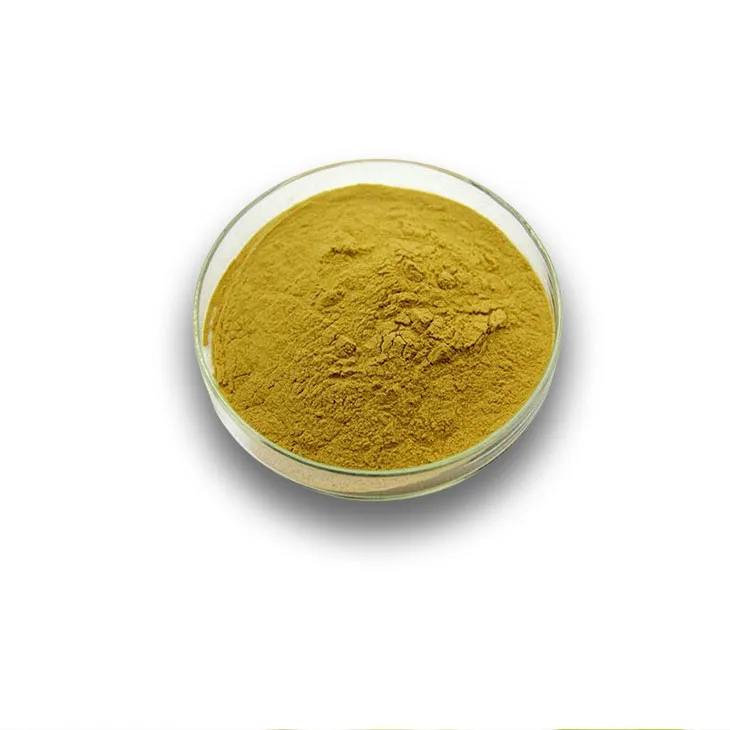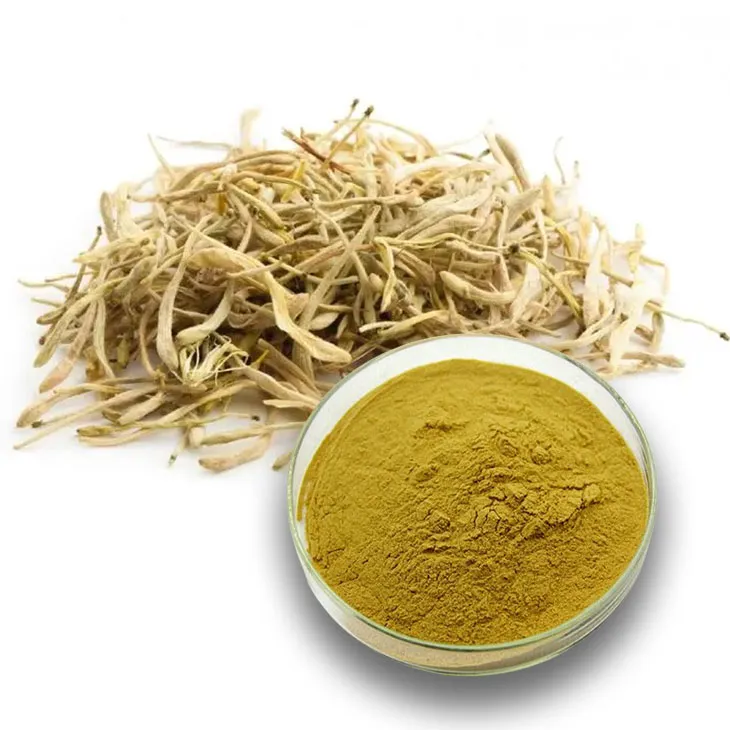- 0086-571-85302990
- sales@greenskybio.com
Bulk purchase of honeysuckle pollen.
2024-12-01

1. Introduction
Honeysuckle Pollen has been gaining increasing attention in various sectors, leading to a growing trend of bulk purchases. This article aims to explore the reasons behind this phenomenon, as well as the key aspects related to quality control, supplier relationships, and the utilization of its unique properties in commercial areas.

2. Reasons for Bulk Purchase
2.1 Cost - effectiveness
- When purchasing Honeysuckle Pollen in bulk, the unit cost is significantly reduced. This is mainly due to economies of scale. Suppliers are often more willing to offer discounts for large - quantity orders. For example, a small - scale purchaser may pay a relatively high price per unit, while a bulk buyer can enjoy a much lower price, which can lead to substantial cost savings in the long run.
- Moreover, bulk purchases can also reduce transportation costs per unit. If multiple small shipments are made, the transportation cost for each unit will be higher compared to a single large - scale shipment.
- For industries that rely heavily on Honeysuckle Pollen, such as the food and pharmaceutical sectors, a stable supply is crucial. By making bulk purchases, companies can ensure that they have an adequate inventory to meet their production demands over an extended period. This helps to avoid production disruptions caused by shortages of raw materials.
- It also provides a buffer against potential price fluctuations in the market. If the price of honeysuckle pollen suddenly increases, companies with a large inventory obtained through bulk purchases can continue their production without having to immediately bear the higher cost.

3. Quality Control in Bulk Acquisition
3.1 Source Verification
- One of the first steps in quality control during bulk purchase is to verify the source of the honeysuckle pollen. Reputable suppliers should be able to provide detailed information about where the pollen is collected. This includes the geographical location, which can have an impact on the quality of the pollen. For instance, honeysuckle grown in certain regions may be exposed to different environmental factors, such as soil quality, climate, and air pollution levels, all of which can affect the purity and potency of the pollen.
- Certifications and accreditations of the source are also important. Suppliers should have relevant certifications, such as organic certifications if the pollen is claimed to be organically sourced. This ensures that the pollen has been produced in accordance with certain quality and environmental standards.
- Before finalizing a bulk purchase, extensive sampling and testing should be carried out. A representative sample of the honeysuckle pollen should be taken from different parts of the batch. This sample is then subjected to various tests, including purity analysis, to determine the percentage of pure pollen in the sample. Microbiological tests are also essential to check for the presence of harmful bacteria, fungi, or other microorganisms.
- Chemical analysis may be required to detect the presence of pesticides, heavy metals, or other contaminants. If the pollen is intended for use in the food or pharmaceutical industries, strict limits are set for these substances, and any batch that fails to meet these standards should be rejected.
- Proper storage and handling are crucial to maintain the quality of bulk - purchased honeysuckle pollen. The pollen should be stored in a cool, dry place, away from direct sunlight and sources of heat. Temperature and humidity control are key factors in preventing spoilage and degradation of the pollen.
- During handling, strict hygiene practices should be followed to avoid contamination. This includes using clean and sterilized equipment for transportation and storage, as well as ensuring that the personnel involved in the handling process are trained in proper handling procedures.

4. Building Long - Term Supplier Relationships
4.1 Importance of Long - Term Relationships
- Long - term relationships with suppliers offer several advantages. Firstly, it can lead to better communication. Over time, both the buyer and the supplier become more familiar with each other's requirements and capabilities. This enables smoother transactions and quicker resolution of any issues that may arise.
- Suppliers are more likely to invest in the quality of their products and services for long - term customers. They may be more willing to improve their production processes, implement stricter quality control measures, and offer customized solutions to meet the specific needs of their long - term partners.
- One effective strategy is to establish clear and mutual goals. Both the buyer and the supplier should have a shared understanding of what they hope to achieve from the relationship. For example, the buyer may aim to obtain high - quality honeysuckle pollen at a competitive price, while the supplier may strive to maintain a stable customer base and expand their market share.
- Regular communication is another key factor. This can include scheduled meetings, phone calls, or emails to discuss various aspects such as product quality, delivery schedules, and market trends. By staying in touch, both parties can anticipate and address potential problems before they become serious.
- Fairness in business dealings is also essential. This means paying suppliers on time, adhering to agreed - upon contracts, and being reasonable in negotiating prices and terms. A reputation for fair dealing will attract suppliers and encourage them to maintain a long - term relationship.

5. Utilizing the Unique Properties of Honeysuckle Pollen in Commercial Sectors
5.1 In the Food Industry
- Honeysuckle pollen can be used as a natural flavor enhancer in various food products. Its unique aroma and taste can add a pleasant and distinct flavor to items such as baked goods, beverages, and confectionery. For example, in some artisanal bread recipes, a small amount of honeysuckle pollen can impart a delicate floral note.
- It also has potential health - promoting properties. Some studies suggest that honeysuckle pollen may contain antioxidants, which can help to prevent oxidative damage in the body. This makes it an attractive ingredient for the development of functional foods, which are designed to provide additional health benefits beyond basic nutrition.
- Traditionally, honeysuckle has been used in herbal medicine, and its pollen may also possess certain medicinal properties. It has been investigated for its anti - inflammatory, antibacterial, and antiviral effects. In the pharmaceutical industry, it could potentially be used as an ingredient in the development of new drugs or as a complementary therapy in traditional medicine.
- However, extensive research and clinical trials are still needed to fully understand and validate its medicinal potential. This includes determining the appropriate dosage, safety profiles, and potential interactions with other drugs.
- Honeysuckle pollen can be incorporated into cosmetic products for its skin - nourishing properties. It may contain nutrients such as vitamins and minerals that can help to improve skin health. For example, it could be used in face creams, lotions, and masks to moisturize and rejuvenate the skin.
- Its antioxidant properties also make it suitable for anti - aging products. By protecting the skin from oxidative stress, it can help to reduce the appearance of wrinkles and fine lines, and improve the overall texture and elasticity of the skin.
6. Economic and Practical Aspects of Large - Scale Buying
6.1 Economic Impact on the Supply Chain
- Bulk purchases of honeysuckle pollen can have a significant impact on the supply chain. For suppliers, large - scale orders can provide the financial resources and incentives to expand their production capacity. This can lead to the creation of more jobs in the collection, processing, and distribution of the pollen.
- On the buyer's side, cost savings from bulk purchases can be reinvested in other areas of the business, such as research and development or marketing. This can contribute to the overall growth and competitiveness of the company in the market.
- When considering a bulk purchase, buyers need to have adequate storage facilities. As mentioned earlier, proper storage is crucial for maintaining the quality of the pollen. If a company does not have sufficient storage space, it may need to invest in additional facilities or outsource its storage to a third - party provider.
- Buyers also need to plan their inventory management carefully. They should have a clear understanding of their consumption rate of honeysuckle pollen and ensure that their inventory levels are neither too high, which can lead to waste, nor too low, which can result in production shortages.
7. Conclusion
In conclusion, the bulk purchase of honeysuckle pollen offers numerous benefits, including cost - effectiveness, stable supply, and the ability to take advantage of its unique properties in various commercial sectors. However, it also requires careful attention to quality control, building long - term supplier relationships, and considering the economic and practical aspects. By doing so, businesses can maximize the value of their bulk purchases of honeysuckle pollen and contribute to the growth and development of their respective industries.
FAQ:
What are the main benefits of bulk purchasing honeysuckle pollen?
Bulk purchasing of honeysuckle pollen offers several benefits. Firstly, it often leads to cost savings as suppliers may offer discounts for large orders. Secondly, it ensures a consistent supply for commercial operations that rely on this pollen, such as in the pharmaceutical or cosmetic industries. Thirdly, it allows for better planning and inventory management in these industries.
How can one ensure quality control during the bulk acquisition of honeysuckle pollen?
Quality control during bulk acquisition of honeysuckle pollen can be achieved in multiple ways. One should start by choosing reliable suppliers with a good track record. Samples of the pollen should be tested for purity, potency, and absence of contaminants in a laboratory. Regular inspections of the supplier's facilities and production processes can also help ensure quality. Additionally, setting clear quality standards in the purchase contract is essential.
Why is building a long - term supplier relationship important in the context of buying honeysuckle pollen in bulk?
Building a long - term supplier relationship is crucial when buying honeysuckle pollen in bulk. A long - term relationship often leads to better prices as the supplier values the continued business. It also ensures a more stable supply, as the supplier is more likely to prioritize a long - term customer. Moreover, over time, the buyer and supplier can work together to improve quality control and develop new products or applications based on the honeysuckle pollen.
What are the unique properties of honeysuckle pollen that make it valuable in commercial sectors?
Honeysuckle pollen has several unique properties that make it valuable in commercial sectors. In the pharmaceutical industry, it may have medicinal properties such as anti - inflammatory or antioxidant effects. In the cosmetic industry, it can be used for its skin - nourishing and rejuvenating qualities. It may also have potential in the food industry as a natural flavor enhancer or nutritional supplement due to its rich nutrient content.
How can commercial sectors make the most of the unique properties of honeysuckle pollen?
Commercial sectors can make the most of the unique properties of honeysuckle pollen by conducting research to fully understand its potential applications. In the pharmaceutical industry, this could involve clinical trials to prove its medicinal benefits. In the cosmetic industry, formulating products that highlight its skin - friendly properties is key. In the food industry, developing innovative products that incorporate the pollen in a palatable and safe way can help maximize its value.
Related literature
- The Properties and Potential Applications of Honeysuckle Pollen in Modern Industries"
- "Quality Assurance in Honeysuckle Pollen Procurement for Commercial Use"
- "Building Sustainable Supplier Relationships in the Honeysuckle Pollen Market"
- ▶ Hesperidin
- ▶ Citrus Bioflavonoids
- ▶ Plant Extract
- ▶ lycopene
- ▶ Diosmin
- ▶ Grape seed extract
- ▶ Sea buckthorn Juice Powder
- ▶ Fruit Juice Powder
- ▶ Hops Extract
- ▶ Artichoke Extract
- ▶ Mushroom extract
- ▶ Astaxanthin
- ▶ Green Tea Extract
- ▶ Curcumin
- ▶ Horse Chestnut Extract
- ▶ Other Product
- ▶ Boswellia Serrata Extract
- ▶ Resveratrol
- ▶ Marigold Extract
- ▶ Grape Leaf Extract
- ▶ New Product
- ▶ Aminolevulinic acid
- ▶ Cranberry Extract
- ▶ Red Yeast Rice
- ▶ Red Wine Extract
-
Chaste Berry Extract
2024-12-01
-
Europen Bilberry Extract
2024-12-01
-
Polygonum multiflorum extract
2024-12-01
-
Kelp Extract Powder
2024-12-01
-
Curcuma Longa Extract/Turmeric extract
2024-12-01
-
Black Rice Extract
2024-12-01
-
Pine bark Extract Powder
2024-12-01
-
Giant Knotweed Extract
2024-12-01
-
Rose Hip Extract
2024-12-01
-
Cocoa Extract
2024-12-01





















